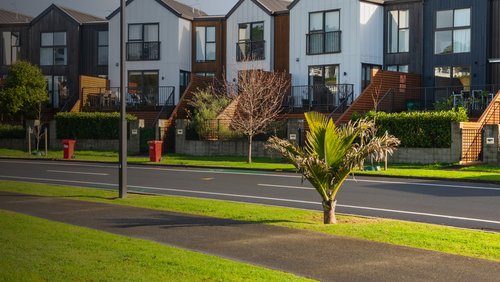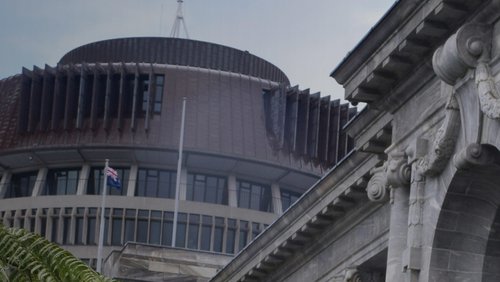10 Sep 2018
With the right targeted schools programme, strong support and good role models, more students can aspire to STEM careers, regardless of their school’s decile rating or location. The Wonder Project combines all three as its pilot programme launches, ahead of a nationwide roll-out.
“The idea that ‘oh, you won’t amount to much other than ending up on the news for some crime’.”
But these negative misconceptions only encouraged the Melbourne-based electrical engineer at Aurecon, who is currently working on the city’s West Gate Tunnel project. Veronica recognises she’s a role model for young people.
“If someone like me who walked in their shoes, and now has been able to have the experiences that I have, can do it, they can too.” She credits her decile one girls’ secondary school, McAuley High School, and in particular her physics teacher Mr Schiefler, with nurturing her interest in engineering.
“He loved physics and imparting that knowledge to people, and then it was just a bonus that someone in his class actually wanted to apply it.”
When Veronica started at the predominantly Pasifika school in Year 9, she didn’t know what she wanted to do for a job but science was appealing. Once she learnt about engineering in Year 10, she “wanted to help change the world”.
Making an impact
Historically, there are a range of reasons why girls haven’t chosen engineering and Veronica acknowledges there can be additional barriers for Polynesian girls.
“I think for a [Pakeha] female the chances of hearing about engineering and opportunities are higher because of attending higher decile schools. And they have technology classes and better resources.
“A typical Pacific Island girl is sitting in a low decile school having applied science and applied maths thrown at them and nobody to show them ‘actually, you can do more than this’. Saying: ‘Have you heard of this thing called engineering?’”
She’s a firm believer in the power of strong role models in schools to influence and inspire young people and she was an ambassador for Engineering New Zealand’s former schools programme, Futureintech.
“It was my way of giving back… Futureintech gave me a role where I was able to impart inspiration and my experience to young people who I know are going to follow in my footsteps.” If someone like me who walked in their shoes... can do it, they can too.
“I told them what my physics teacher told me – that if I kept my mind open with science and maths all the way up to year 12 and 13 I’d have more options in my career choices.”
Over the years, Veronica has met with graduates who remember her visiting their classrooms and she believes targeted STEM programmes in schools can have a big impact on career choices.
“If you can get one child to see someone who has used maths or science in a practical sense and go ‘actually, I’ll keep taking maths, I’ll keep taking science’, that’s enough to justify it is making an impact on young lives.”
The Wonder Project
Earlier this year, Engineering New Zealand launched a pilot for its revamped schools programme, The Wonder Project, funded by Callaghan Innovation. For 13 years, its predecessor, Futureintech, promoted STEM careers to young New Zealanders through one-off school visits and career fairs. The Wonder Project has been designed to reflect changes in technologies – from 3D printing and augmented reality to space travel and digital transformation – and changes to the types of careers students can strive for. It leverages off Futureintech’s strengths – teacher and ambassador input and support – and focuses on encouraging students to consider STEM careers early in their decision-making process.
The Wonder Project Rocket Challenge pilot for students in years 5-8 began in term two with seven South Auckland schools building and flying a water rocket. A second pilot with 22 schools recently started and there’ll be a joint Rocket Challenge blast off in term four. A nationwide roll-out to all New Zealand schools is planned for 2019. The Wonder Project will also include a STEM challenge for years 7–9 focused on solving a community issue using innovation, and a careers initiative to encourage senior students to consider STEM as a tertiary study option.
Rebekah Gage, a year 8 teacher at Papakura’s Conifer Grove School, says her school wanted to get involved because it was a novel way for students to explore science concepts that can be difficult to investigate and understand.
Presentations and videos from Rocket Lab increased the excitement for students.
“It gave rocket science a more achievable feel as it was something being done right here in our backyard rather than just looking at NASA or SpaceX.”
She says The Wonder Project is easy to follow – lesson planning was straightforward, all resources were provided and it caters to a range of learning abilities.
“Once the students have some basic understanding they've been able to work together in small groups to share their knowledge and create their rockets.” Rebekah says the programme’s much more than reading and writing about how rockets work.
“The students get to draw, design, build, fly, video, take photos and rebuild when things don’t go quite how they were planned. I've had 10 groups of students all working on their rockets completely engaged and excited.”
She describes having an engineer ambassador as “amazing”, adding a real authenticity to the programme. Ambassador Emily Bennet has become part of their class, she says.
“You don’t get a ‘real person’ with many other initiatives to talk to and discuss ideas with.”
Seeing their rockets fly has been of most value to her students.
“The students have been able to test out their prototypes, see how they go and then come back to class and modify and change their designs where needed.”
Rebekah admits she was surprised by just how much The Wonder Project has excited and inspired students.
“My students didn’t really know much about what being an engineer entailed, and now there are so many, especially girls, who are wanting to explore a career in engineering.”
Become a Wonder Project Ambassador
We’re looking for more volunteers from around the country to become Wonder Project Ambassadors and help inspire the next generation of engineers. If you’d like to be involved, get in touch with us at wonder@engineeringnz.org
This story originally appeared in EG magazine. To subscribe to EG, email hello@engineeringnz.org.





